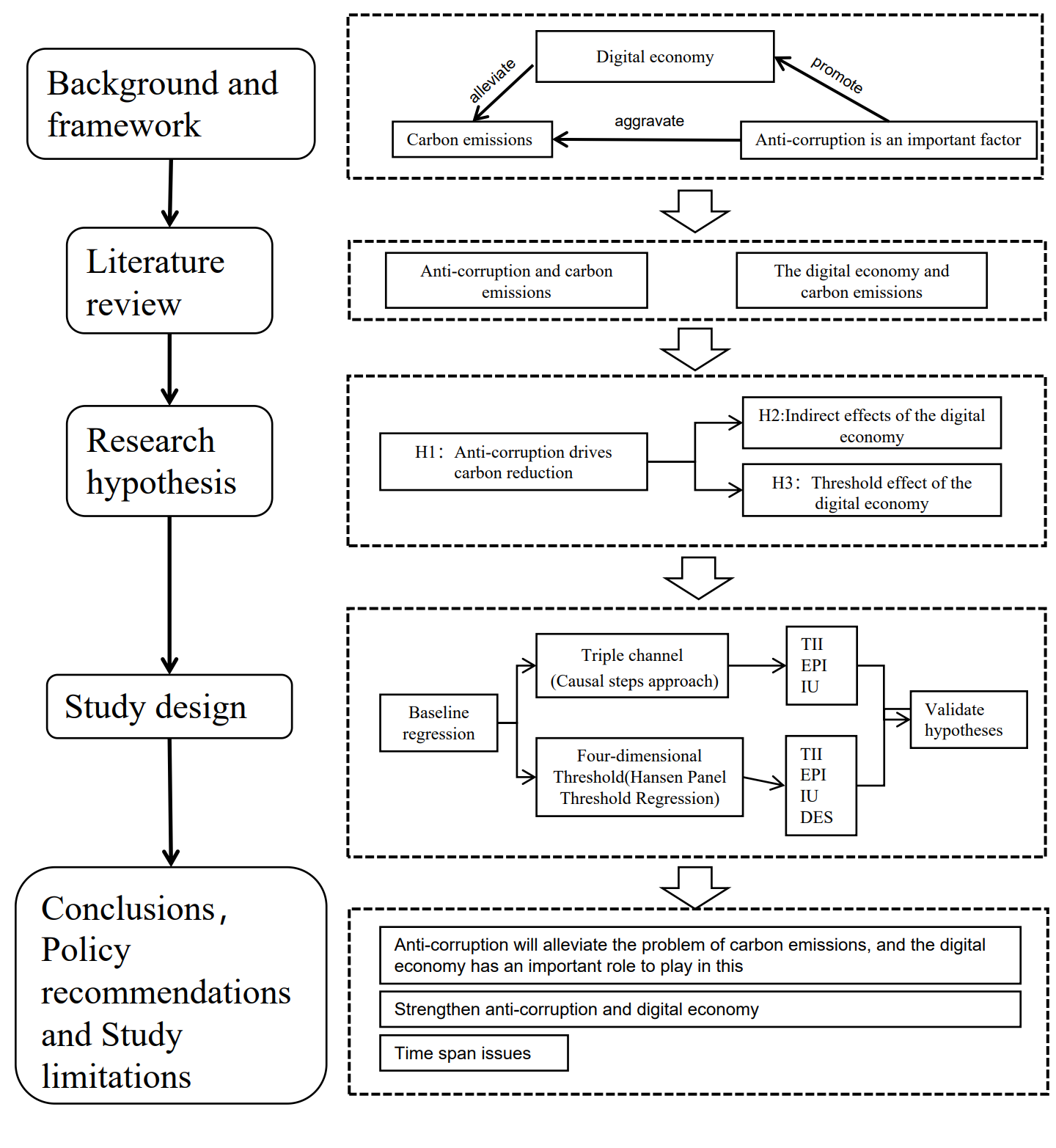
At a time when excessive carbon emissions(CE) lead to rapid global warming, anti-corruption(ACP) has become an important initiative to reduce CE. Meanwhile, the growth of the digital economy (DE) can also have a substantial impact on the connection between ACP and CE. Utilizing panel data from 121 countries across the globe spanning the years 2013 to 2021, this paper empirically investigates relationship between ACP, the development of the DE and CE. The overall impact of ACP on CE reduction and the threshold effect of DE development during the reduction by ACP are analyzed using the stepwise regression method and the panel threshold model. Research indicates that (1) ACP plays a crucial role in reducing CE, as confirmed by various robustness tests. (2) ACP can effectively reduce CE by promoting the DE, particularly through e-participation and the Internet. (3) With DE development, the inhibitory effect of ACP on CE shows a significant threshold effect. ACP exhibits more significant CE reduction effects in countries with a higher level of DE. (4) Heterogeneity analysis shows that the relationship between ACP and CE varies across continents and between colonized and non-colonized countries. This is because low levels of economic development and colonial history may distort the relationship. These findings provide recommendations for governments to utilize the DE to strengthen ACP initiatives, facilitate achieving global sustainable development goals and reduce CE.
Total file downloads: 2